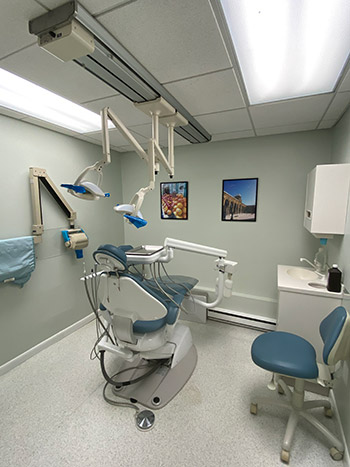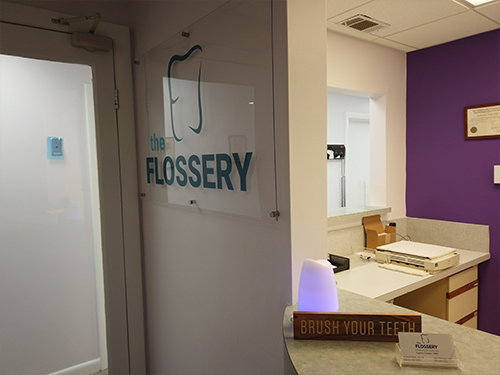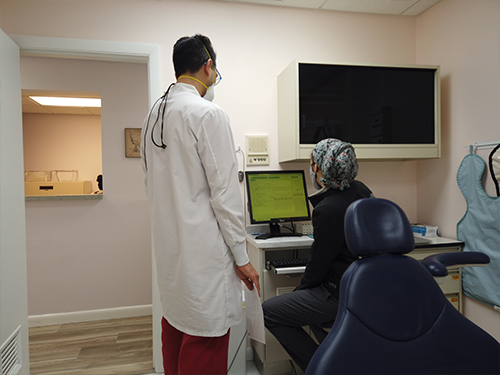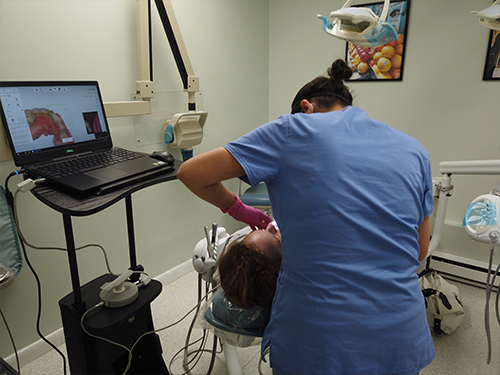The Flossery in Waltham

The Flossery: A calming dental practice in Waltham, MA with an emphasis on the mouth body health
Welcome to The Flossery, a new kind of holistic dental practice in Waltham, MA where a patient’s comfort and a calming experience is our priority. At The Flossery our team's goal is to treat you as the unique, whole person you are with gentle, personalized care from before you even walk in the door.
Before visiting our practice conveniently located off South Street in Waltham, MA, you can take control of your appointment by filling out our “handle me with care” form. When you arrive for your appointment, you can share your form with our staff so we can ensure we are sensitive to your unique needs and preferences throughout your visit.
As you arrive at The Flossery, you will be able to choose from a variety of unique relaxation options to ensure that you have a calming, comfortable visit. Some of the personalized options you may choose from include aromatherapy scents, your own selection of music, blankets and pillows, soft lighting or no overhead lights, safe CBD sedation options, and much more. Please ask us for our amenities list!
The Flossery difference
At The Flossery, our goal is to provide you with all the things you have ever wanted from your dental care provider. In addition to the calming atmosphere at our practice, you can also rely on:
- Receiving the latest minimally invasive dental treatments.
- Personalized care from a dental team that genuinely listens to your unique needs.
- A holistic, preventive approach that rewards healthy habits.
- Easy, direct communication by text, email or call at any time.
- Transparent information about your dental health, treatment and prevention options, and pricing.
- Second opinions.
- Flexible payment options.
The mouth body connection at The Flossery
Our mission at The Flossery is to remove the oral contributions to systemic disease.

I’ve been taking medication for my sinuses for years, none of my doctors knew what was wrong, it’s finally cleared up!

My eyes have never looked and felt better. They have really cleared up since the surgery. My husband even noticed it. It’s beyond exciting. My eyes have been red and unhappy for 25 years or more.
Have you been looking for answers to your health problems? Have you gone to multiple medical specialists with no success? The mouth is connected to the rest of the body and issues in the mouth can present as symptoms in other parts of the body. We take a detailed and extensive look at your oral health and leave no stone unturned.
Here are some examples where disease could be helped and cured by adressing it through an oral health perspective.
Infected Upper Teeth and Vision Problems
Infections in upper teeth, particularly the molars, can sometimes lead to vision issues. This happens because the roots of the upper teeth are close to the sinuses and the optic nerve. If an infection spreads from the teeth to the sinuses (called a dental abscess), it could potentially cause pressure that affects the eyes, leading to blurred vision or other problems.
Sinus Issues
Your upper teeth are located near your sinuses, especially the molars and premolars. If there's a tooth infection, the bacteria can spread to the sinuses, causing a condition called sinusitis. Sinus infections can lead to stuffiness, pain around the nose, headaches, and pressure in the face. If untreated, it could lead to chronic sinus problems.
Dementia
There’s growing research suggesting that oral health, especially gum disease, may be linked to dementia. Gum disease (periodontal disease) causes inflammation in the mouth, and the bacteria from infected gums can enter the bloodstream, possibly contributing to brain inflammation. Some studies show that people with gum disease may be at higher risk for cognitive decline, though more research is needed to fully understand the connection.
Mouth Breathing and Face Shape
Mouth breathing, especially in children, can affect the development of facial structures. When a child consistently breathes through their mouth instead of their nose, it can lead to narrowed dental arches, a high palate, and even changes in jaw alignment. This may also affect the way their teeth grow. Over time, mouth breathing can lead to issues like sleep apnea, misaligned teeth, or speech problems.
Ear Infections and Palate Size
The size and shape of your palate (the roof of your mouth) can affect your ear health. A narrow palate can restrict airflow and lead to Eustachian tube dysfunction (the tube that connects the middle ear to the back of the throat). This can increase the risk of ear infections, as the Eustachian tube may not drain fluid properly from the middle ear. In children, this can lead to repeated ear infections, which can affect hearing and speech development.
Heart Health
There’s growing evidence suggesting a connection between gum disease (periodontal disease) and heart disease. The theory is that the bacteria from infected gums can enter your bloodstream and cause inflammation throughout your body, including in the blood vessels. This inflammation could potentially lead to atherosclerosis (narrowing of the arteries), which increases the risk of heart attacks, strokes, and other cardiovascular problems. People with gum disease are also at higher risk for high blood pressure and other heart-related issues.
In addition to the links between gum disease and heart health, there is also a connection between sleep apnea and heart conditions like medication-resistant hypertension (high blood pressure) and arrhythmias (irregular heartbeats).
Joint Health
Oral health may also play a role in joint health, particularly in relation to rheumatoid arthritis (RA). RA is an autoimmune disease that affects the joints, causing pain, swelling, and stiffness. Some studies have shown that the bacteria that cause gum disease may also trigger the immune response in people with RA, worsening their symptoms. This suggests that poor oral hygiene may contribute to joint inflammation, especially in people already prone to conditions like arthritis.
Pregnancy Health
Maintaining good oral health is especially important during pregnancy. Poor oral hygiene can increase the risk of gum disease, which has been linked to preterm birth and low birth weight. The bacteria from infected gums can enter the bloodstream and reach the placenta, potentially causing inflammation and affecting the developing baby. Pregnant women are also more likely to experience pregnancy gingivitis, a condition where the gums become inflamed due to hormonal changes. While pregnancy itself can affect oral health, it's still crucial to maintain regular dental care during this time to avoid complications.
Want to learn more about us?
Schedule an exploratory call!









